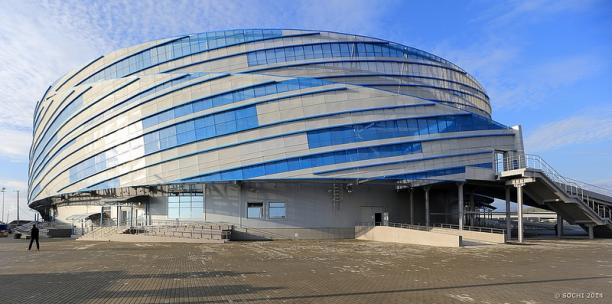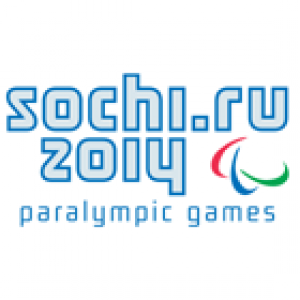Sochi 2014: Games could shift Russian perceptions
07.03.2013Russian athletes’ performances, together with programmes implemented by the Sochi 2014 Organising Committee, have the chance to change Russian society.
 "Shayba" Arena will host the Ice Sledge Hockey at the Sochi 2014 Paralympic Games
© • Sochi 2014
"Shayba" Arena will host the Ice Sledge Hockey at the Sochi 2014 Paralympic Games
© • Sochi 2014
 Sochi 2014 Paralympic Winter Games
© • Sochi 2014
Sochi 2014 Paralympic Winter Games
© • Sochi 2014
"What the Organising Committee has done in creating a barrier-free environment in Sochi is fantastic and something that should act as a blueprint not just for the whole of Russia but for all other cities interested in staging the Paralympic Games.”
Russian athletes noticed a small shift in perceptions following their second-place finish at the London 2012 Games.
Five-time gold-medal winning swimmer Oxana Savchenko told Russian international news agency Ria Navosti: “The relationship’s changed in the last four years, drastically compared to the Games in Beijing, like chalk and cheese.”
“They showed little of our races in Beijing on TV, only mentioned it in the news if we won something.
“When I won my first medal in London, everyone wrote tons to me, called me.
“We really didn’t expect that there would be such interest in us. But it’s for the better because in our country, I think, we need to instill a new relationship to the Paralympics.”
Exactly one year from now, Paralympic sport will be coming to Russians live in a country where more than 13 million people have an impairment.
The Sochi 2014 Organising Committee has stated that current sociological research points to low levels of awareness among Russians about the Paralympic Games.
However, seeing these athletes up close and in-person will have an exponentially greater effect on Russian society, and could infuse a change in perceptions throughout the nation.
Nordic sit skier Roman Petushkov, alpine visually impaired skier Alexandra Frantseva and an up-and-coming ice sledge hockey team all have the potential to become national heroes and change the way Russians view people with an impairment.
Their performances may have an even greater impact off the field of play than on it.
Just a few months ago, IPC President Sir Philip Craven said of Sochi 2014: "Sports-wise they will be the biggest Games yet, with the inclusion of para-snowboard in the alpine skiing programme, however it is some of the work away from the sporting action that has left me most impressed.
"What the Organising Committee has done in creating a barrier-free environment in Sochi is fantastic and something that should act as a blueprint not just for the whole of Russia but for all other cities interested in staging the Paralympic Games.”
The Organising Committee launched a Paralympic Awareness Programme to try to shift people’s attitudes toward people with an impairment and to educate them about the values of the Paralympic Movement in the lead-up to the Games.
One of the major projects in this programme is the Accessibility Map, a unique interactive online map of Russia that showcases local para-sport clubs along with information resources about the Movement.
Volunteers and internet users have put together a list of barrier-free venues and infrastructures throughout the country to make it easier for people with an impairment to find places to play sport near to their home. More than 500 barrier-free venues have already been added to the map.
In the lead-up to the Games, the Organising Committee is also implementing an educational programme in Russian schools to increase awareness for the Paralympic Movement among the country’s youth.



















